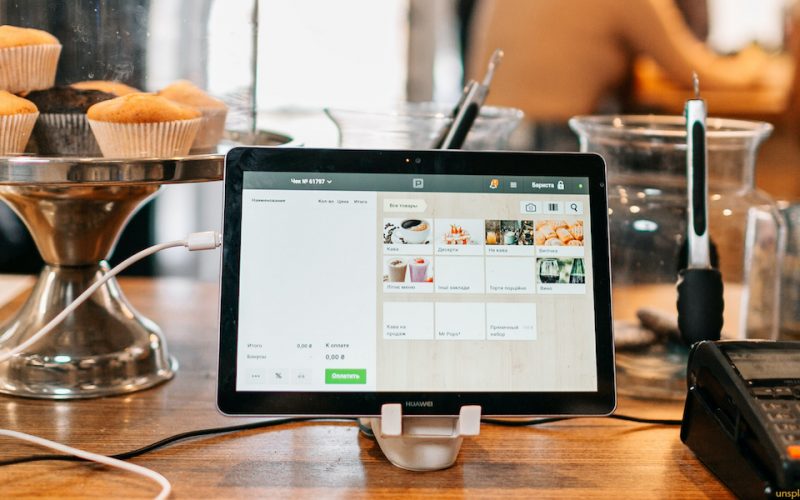According to a 2014 survey conducted in the UK, 53% of small businesses rated point of sale systems as the most favourable in-store technologies. Clearly, this explains a lot about how technology has made the world of business easy and accessible.
The top point of sale systems integrates payment processing, inventory and customer management, payroll and accounting, and other services into robust POS hardware and software packages.
Here, we’ll discuss retail and electronic point-of-sale systems as they pertain to small businesses in the UK.
Keep your eyes peeled as we begin!
Best Point of Sale Systems for Small Businesses in The UK
#1. Revel
Revel System is one of the Point of sale systems that offers retail businesses the greatest CRM service. It was designed primarily for bars, quick-service restaurants, coffee shops, and breweries. Revel’s personalized loyalty programs can help food and beverage industry firms.
Furthermore, Revel Systems’ Mobile Order Taker system, which interfaces smoothly with fixed equipment helps to speed up front-of-house order taking. Secondly, extensive inventory, analytic reporting, and QuickBooks connection can assist you in better understanding your business and customers.
The cost of installing and configuring Revel’s POS system is £490.10. After that, you’ll pay £71.99 per month, billed annually, with a three-year commitment.
#2. Lightspeed
Lightspeed Retail is a comprehensive retail point-of-sale solution. The powerful POS system is controlled by an iPad or a desktop computer and can be integrated with e-commerce platforms, advanced analytics, customer loyalty, and other add-ons to improve in-store service. The system includes a full-fledged inventory management system as well as standard reporting.
The Basic package is the most affordable and contains only the electronic point of sale system and core management tools. If you pay yearly, this costs £69 per month for one till and one store location (monthly payments cost more).
The Standard membership includes e-commerce, while the Advanced subscription includes a customer loyalty module as well. Finally, the Pro plan adds advanced shop analytics. Additional register licenses are not free. All plans can be cancelled at any time, but any money paid in advance is non-refundable.
#3. Square
Square has proven to be among the best Point of sale systems for small businesses. It’s free to get started, simple to use, and rich with essential features. These advantages make Square an excellent alternative for young business owners that require simple yet powerful functionality from the start.
Square offers comprehensive reporting and analytics, as well as the ability to generate invoices, track staff shifts and timecards, and manage numerous locations. It also allows you to manage email marketing, customer loyalty programs, and gift card programs.
Square’s credit card scanners and point-of-sale mobile app, works with most Android and Apple devices to accept consumer payments. For example, many Square customers run their companies on iPads. Furthermore, customized receipts can be emailed or printed using a receipt printer. You can also keep open tabs, split checks, and manage your inventory in real-time with Square’s point-of-sale software.
Lastly, Square software for retail plans cost £43.60 monthly, with discounted transaction fees (2.5% + £7.27 for in-person payments).
#4. QuickBooks
QuickBooks scarcely requires an introduction because the company has been powering firms’ accounting requirements for decades. You may now easily run your own small business by combining QuickBook’s point-of-sale systems, accounting services, and POS hardware.
QuickBooks, unlike the other premium POS systems on our list, forces you to buy your POS software outright. The cost varies according to the system used, and it is a one-time payment. However, its expensive initial cost may put it out of reach for small or new firms.
There are two basic alternatives, each with its own set of monthly charges and transaction costs. You can also contact QuickBooks customer support to receive a quote on a custom plan.
You should also keep in mind that QuickBooks plans do not include any hardware, so that will be an extra cost to consider.
#5. Vend
Vend is often regarded among the best retail point of sale systems for small businesses (or best-known, at least). The UI is simple to use, but it includes extensive inventory tasks and a well-rounded set of tools to maximize retail performance. It is compatible with any iPad, Mac, or PC, but not with Android tablets.
Furthermore, Vend provides their customers with online and phone support 24 hours a day, seven days a week. They feature a full online resources area with e-books, tools, articles and advice, courses, and even hold events about running a retail business all over the world. It’s no surprise that Vend is well-liked by businesses of all sizes — small, medium, and large.
The Lite plan is suitable for businesses with a monthly turnover of up to £15k and one outlet. The Pro plan, which is available with any turnover, provides extensive reporting, promotions, gift cards, multi-outlet administration, and access to all add-ons. Interestingly, both come with the one registered license; additional till licenses are extra.
Electronic Point of Sale Systems
Nevertheless, in the retail and hospitality industries, electronic point of sale systems (EPOS) is computerized system for recording sales, accepting payments, managing inventories, and creating reports. EPOS systems, which are available in several configurations typically include a touchscreen computer, receipt printer, barcode scanner, cash drawer, and software.
Any EPOS system has two main components. The first is the hardware and accessories, which enable you to choose the look and feel of your store. Secondly, and frequently more crucial is the software where you log your sales and administer your firm.
Some Electronic Point of Sale Systems in the UK
#1. EposNow
EposNow was founded in 2011 and now serves over 30,000 firms in the retail and hospitality sectors worldwide. In addition to providing an economical, yet sophisticated electronic point of sale solution, the company hopes to level the playing field between small, independent stores and huge corporations.
Also, EposNow has an excellent feature set, making it one of the top electronic point of sale systems for UK retail businesses ranging from small-scale to large-scale electronics merchants. Below, we look at some of the features and benefits that make EposNow a top choice for shops.
- Real-time automated reports
- Wide choice of payment processors available
- Online ordering, delivery and pay-at-table options
- Epos pocket app.
In a word, Epos Now provides reasonable and transparent pricing, making it one of the most cost-effective EPOS systems available.
#2. Shopify
This company’s powerful e-commerce integration translates into an impressive point-of-sale solution for retail brick-and-mortar stores too. Hence, Shopify POS is a service that’s easy to set up and highly customizable to fit small businesses and scale up as your business grows.
Shopify offers three major plans, as well as a scaled-down “Lite” plan for operating retail business solely on Facebook. However, plans vary in terms of monthly cost, payment processing costs, and the breadth of offered services.
The £21 Basic Shopify plan is a cost-effective solution for tiny retail businesses that sell online, in a single retail location, or in-person at pop-up stores and local markets. The transaction costs with Shopify are also a little tricky. So, depending on your plan, online or keyed transactions range from 2.4%+30 to 2.9%+30. Meanwhile, in-person transaction fees range from 2.4%to2.7%.
#3. TouchBistro
TouchBistro is a restaurant-specific iPad EPOS app. Because it is cloud-based, all vital information is safely saved online, and you can access the back office reporting and analytics tools from anywhere, at any time.
Further, it is a customizable EPOS system that can help keep your customers eager for more with solutions geared to all types of eateries, from full-service restaurants to food trucks.
#4. iiko
iiko is among the restaurant-specific electronic point of sale systems on the list. It automates hundreds of micro-tasks to help you optimize your workflow, saving you time and money so you can focus on growing your business. Staff scheduling, cost and inventory control, and smart sales forecasting are all standard features, and managing bookings is a breeze.
iiko’s remarkable EPOS system also includes a customer rewards program, allowing you to give personalized experiences to your most loyal customers. And it’s all supported by extensive reporting and analytics, so you’ll always know what the business needs and can keep delivering more of them.
#5. Tevalis
Tevalis has secured its spot as one of the hospitality industry’s best EPOS solutions by winning the 2020 Reader’s Choice award in Restaurant Magazine. It creates a unique user experience for your EPOS system, making it suitable for many sectors, from restaurants and bars to stadiums and theatres.
It also includes essential features like bill splitting, personalized messages to personalize a customer’s bill, and clocking in-and-out functionalities that allow you to easily calculate working hours.
Benefits of Electronic Point of Sale
- Price changes are simple and rapid.
- Real-time and comprehensive reports enable you to make more informed business decisions.
- Central setting eliminates the need to individually program each till.
- Increase store productivity and customer satisfaction, which leads to larger profit margins.
- To prepare for the future, including a Customer Relationship Manager (CRM), Appointment Booking System, and Loyalty Program.
- Allows you to record specific goods sold rather than generalized departments
Read Also: Point Of Sale Systems: Best POS System For Businesses
Do all POS systems require a monthly fee?
POS software can be purchased once and be free to use or it might have monthly subscription fees. For mobile card readers, store register systems, and other payment devices, hardware expenditures are often one-time expenses. Each time you process a credit card or debit card, you will be charged recurring fees.
What are the four types of POS systems?
Small businesses today typically employ one of four different types of point-of-sale systems: traditional, tablet, mobile, and cloud-based. We’re describing each one’s definition, salient characteristics, typical price range, and a few instances of each. Keep in mind that both systems offer a lot of the same things.
Can POS work without Internet?
Because all of the data and information required by a locally installed system is stored on the computer, it may operate without an internet connection (or for larger systems, a server on-site).
What is the minimum amount to start a POS?
The POS sector doesn’t need a big initial investment like most other businesses do. You must have a balance of at least N50,000 to begin. The initial costs are further reduced by the absence of the requirement for a decent shop to house the business.
What is the difference between ERP and POS?
We can infer that POS software is a reference to the most recent iteration of automated cash registers. ERP, in contrast, is a software program that controls daily business activities like sales and procurement. The fact that you can now combine the two into one object lends credence to the argument.
What hardware is needed for a POS system?
You will require a computer with a CPU speed of 1 GHz or greater, 1 GB of RAM memory, and 3GB of hard drive space to operate a POS. This is excellent for new shops because brand-new laptops with these specifications can be had for as little as $350.
How much does a POS system cost per month?
A single-register POS system can range in price from $30 to $230 per month (Shopify). Depending on the size of the business, the cost of a POS system for the first year might range from $1,200 to $6,500. This includes a monthly software subscription and initial hardware setup.
Conclusion
To summarize, when selecting a POS system in the UK, you must consider your company’s specific requirements. If you own a single retail store, your requirements will be very different from those of a restaurant with multiple locations. What matters is that you select the best out of the many points of sale systems for your specific type of small business.
Related Articles
- PHONE SYSTEMS: 11+ Phone Systems for any Business & All You Need
- ONLINE CRM: Best Small Business Online System Software in 2023 (Free & Paid)
- ECN: (Electronic Communication Network) Definition & All You Need
- QuickBooks Accountant: Basic Guide for Optimal Results (+ Quick Tools)
- CRAWL SPACE ENCAPSULATION COST: Comprehensive 2023 Guide, Updated!!!
FAQs On Point of Sale Systems
What Are 5 Types Of POS Systems?
Smartphones, tablets, mobile POS, card and chip readers, touch screens, computers, self-service kiosks, and terminals are just a few examples of POS devices. Also, Barcode scanners, cash drawers, keyboards, and receipt printers are examples of POS-related devices.
What Are Benefits of POS?
- Better Inventory Management.
- Simple Invoicing.
- Quick Payments.
- Customer Management.
- Better Customer Orders.
- Purchasing / Supplier Order Management.
- Customer Experience.
- Better Customer Satisfaction & Loyalty
How Can I Own a POS Machine?
All you need to get a POS machine from any bank is an account (ideally a current or corporate account) with the bank. Some banks will even accept you with simply a savings account. It should be noted, however, that some other organizations are now providing POS equipment for a one-time price.
Which One is a POS Device?
A POS (Point of Sale) terminal is a card reading machine or any other device that accepts payments for an order placed on the POS system. These machines may or may not be integrated with the POS Software. You may have noticed that in some stores, the bill is printed and the card swiped on a single hardware device
What Is a Point of Sale Example?
Point of sale systems are systems that enable the business transaction between the client and the company to be completed. For example, restaurants, retail businesses, and grocery stores






